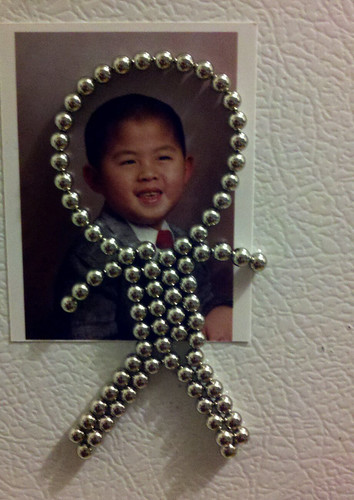Imagine two different 28-year-olds.
One is a New York Broadway lyricist and composer. His first musical on Broadway has just received the prestigious Tony award (the Oscar award for Broadway musicals). His future is bright, full of exciting opportunities.
The other was born in New York, but has lived in Taiwan for the past 20 years. He works at the VOICE Conference, and every year, he writes a musical for the conference attendees to perform. His future is uncertain, with nothing exciting planned.
You can probably guess that the second 28-year-old is me. Several years ago, I remember watching with admiration at a clip of a new, young composer named Lin-Manuel Miranda rapping his acceptance speech upon receiving a Tony Award. In my heart, I thought “When I’m 28, I want to be just as successful.”
Now that I’m the same age, I’m faced with the reality that I haven’t accomplished what I hoped to. I can’t help wondering, does it mean I’m not talented enough? Am I not hard-working enough?
More to the point, am I… a failure?”
Recently, I’ve gained a new appreciation for Psalm 42. The Psalmist is experiencing great, unsatisfied longings within his heart. “As the hart panteth after the water brooks, so panteth my soul…”
Now, the Psalmist could try to convince himself he wasn’t thirsty. “You know, I actually have a pretty good life. I should be grateful with what I have.” Or what if he tried to solve the problems on his own? “If only I had chosen differently, I wouldn’t be thirsty now. If I work really hard, then everything will be okay.”
The key point is he knows what can truly satisfy. “…So panteth my soul after Thee, O God.” Though a thirsty hart may enjoy grass, hay, and corn, only water will do. And while I would like to be famous and successful, none of those things will satisfy. Only God will do.
So what does the Psalmist do? He acknowledges his desires, and looks to the only one who can satisfy them. “Why art thou downcast, O my soul? and Why are thou disquieted within me? Hope in God, for I will yet praise Him, who is the health of my countenance, and my God.”
The point isn’t whether or not I am a failure. The point is, am I putting my hope in God? Is He MY God?






 About 2 months ago my wife and I decided to switch churches. This shouldn’t be one of those casual decisions like “Which burger joint should we hit tonight?”
About 2 months ago my wife and I decided to switch churches. This shouldn’t be one of those casual decisions like “Which burger joint should we hit tonight?”





